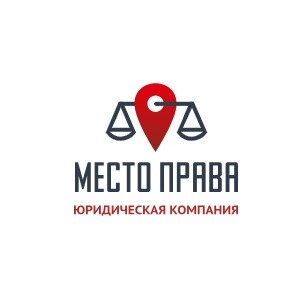Best Bankruptcy Lawyers in Omsk
Share your needs with us, get contacted by law firms.
Free. Takes 2 min.
List of the best lawyers in Omsk, Russia
About Bankruptcy Law in Omsk, Russia
Bankruptcy law in Omsk, Russia, is primarily governed by the Federal Law "On Insolvency (Bankruptcy)" which applies universally across Russia, including the Omsk region. This law stipulates the procedures for declaring both individuals and businesses bankrupt. Bankruptcy is a legal process that allows debtors, who cannot meet their credit obligations, to resolve their financial issues under the supervision of a court. The process is aimed at protecting the rights of both the debtor and the creditor, facilitating a fair distribution of the debtor's assets among the creditors, or reorganizing the debtor's financial activities to restore solvency.
Why You May Need a Lawyer
There are several situations where individuals or businesses may require legal help in the field of bankruptcy. These include complexities in preparing and submitting the required legal documents to declare bankruptcy, negotiations with creditors, or legal proceedings in cases of involuntary bankruptcy filed by creditors against a debtor. A lawyer can provide guidance on the intricacies of the process, represent you in court, and ensure that your rights are protected throughout the bankruptcy proceedings. Moreover, legal assistance may be invaluable for understanding your potential liabilities, or when dealing with the implications of bankruptcy such as asset liquidation, debt restructuring, and potential discharges.
Local Laws Overview
Local laws in Omsk, regarding bankruptcy, adhere to federal Russian legislation. Noteworthy aspects include:
- The threshold for declaring a business bankrupt is a debt of at least 300,000 rubles overdue for more than three months.
- Individuals can declare bankruptcy if unable to fulfill credit obligations of at least 500,000 rubles within the timeframe stipulated by a contract.
- The bankruptcy process involves several stages: supervision, financial rehabilitation, external management, and liquidation for businesses, and debt restructuring and sale of property for individuals.
- A financial manager is appointed by the court to oversee the bankruptcy procedure.
- During the process, a moratorium on creditors' claims may be imposed, halting all collection activities.
Frequently Asked Questions
What is the first step in filing for bankruptcy in Omsk?
The first step in filing for bankruptcy is to submit an application to the Arbitration Court of the Omsk Region. It should include evidence of the debtor's insolvency and a list of known creditors.
How long does the bankruptcy process take in Omsk?
The duration of the bankruptcy process varies. For individuals, it generally takes 6-12 months, while for legal entities, it can range from 6 months to several years, depending on the complexity of the case.
Can any debt be discharged after bankruptcy?
Most debts can be discharged after bankruptcy, but there are some exceptions, including alimony, compensation for damage caused by intentional actions, and certain types of tax debts.
Does bankruptcy affect one's credit rating?
Yes, bankruptcy will negatively affect an individual's or a company's credit rating, making it more difficult to obtain credit in the future.
Is it possible to keep any property after filing for personal bankruptcy?
Individuals are allowed to keep legally exempt property. This includes necessary household items, basic clothing, food, and possibly some tools of trade and residence, within defined limits of value.
Who manages the property after bankruptcy is declared?
A court-appointed financial manager is responsible for managing the property and assets of the debtor throughout the bankruptcy process.
Are there any alternatives to bankruptcy?
Alternatives include out-of-court settlements with creditors, debt restructuring, refinancing, or selling off assets to cover debts before resorting to bankruptcy.
What happens to company operations during bankruptcy?
Company operations may continue if a court believes it can aid in paying off debts. In some cases, operations may cease immediately if liquidation is seen as the only solution.
Can directors of bankrupt companies face personal liabilities?
Directors may face personal liabilities if it is established that they were guilty of fraudulent or wrongful trading leading up to the bankruptcy.
Is bankruptcy information made public in Omsk?
Yes, bankruptcy proceedings are typically recorded in a state register and may appear in credit reports, making the information accessible to the public.
Additional Resources
For individuals seeking additional support and resources in terms of bankruptcy in Omsk, the following could be beneficial:
- The Arbitration Court of the Omsk Region provides legal procedures.
- The Federal Bailiff Service deals with enforcement proceedings.
- The Federal Tax Service where one can find information on outstanding tax debts.
- Non-profit organizations and legal aid services that offer free or reduced-fee assistance.
Next Steps
If you are considering bankruptcy and need legal assistance, the next steps to take include:
- Collect all financial statements and documents related to your debts and assets.
- Consult with a qualified bankruptcy lawyer who can advise you on your options and the likelihood of qualifying for bankruptcy.
- Consider all alternatives to bankruptcy with the help of your lawyer.
- If bankruptcy is the best option, work with your lawyer to prepare and file the necessary documentation with the Arbitration Court.
Lawzana helps you find the best lawyers and law firms in Omsk through a curated and pre-screened list of qualified legal professionals. Our platform offers rankings and detailed profiles of attorneys and law firms, allowing you to compare based on practice areas, including Bankruptcy, experience, and client feedback.
Each profile includes a description of the firm's areas of practice, client reviews, team members and partners, year of establishment, spoken languages, office locations, contact information, social media presence, and any published articles or resources. Most firms on our platform speak English and are experienced in both local and international legal matters.
Get a quote from top-rated law firms in Omsk, Russia — quickly, securely, and without unnecessary hassle.
Disclaimer:
The information provided on this page is for general informational purposes only and does not constitute legal advice. While we strive to ensure the accuracy and relevance of the content, legal information may change over time, and interpretations of the law can vary. You should always consult with a qualified legal professional for advice specific to your situation.
We disclaim all liability for actions taken or not taken based on the content of this page. If you believe any information is incorrect or outdated, please contact us, and we will review and update it where appropriate.









